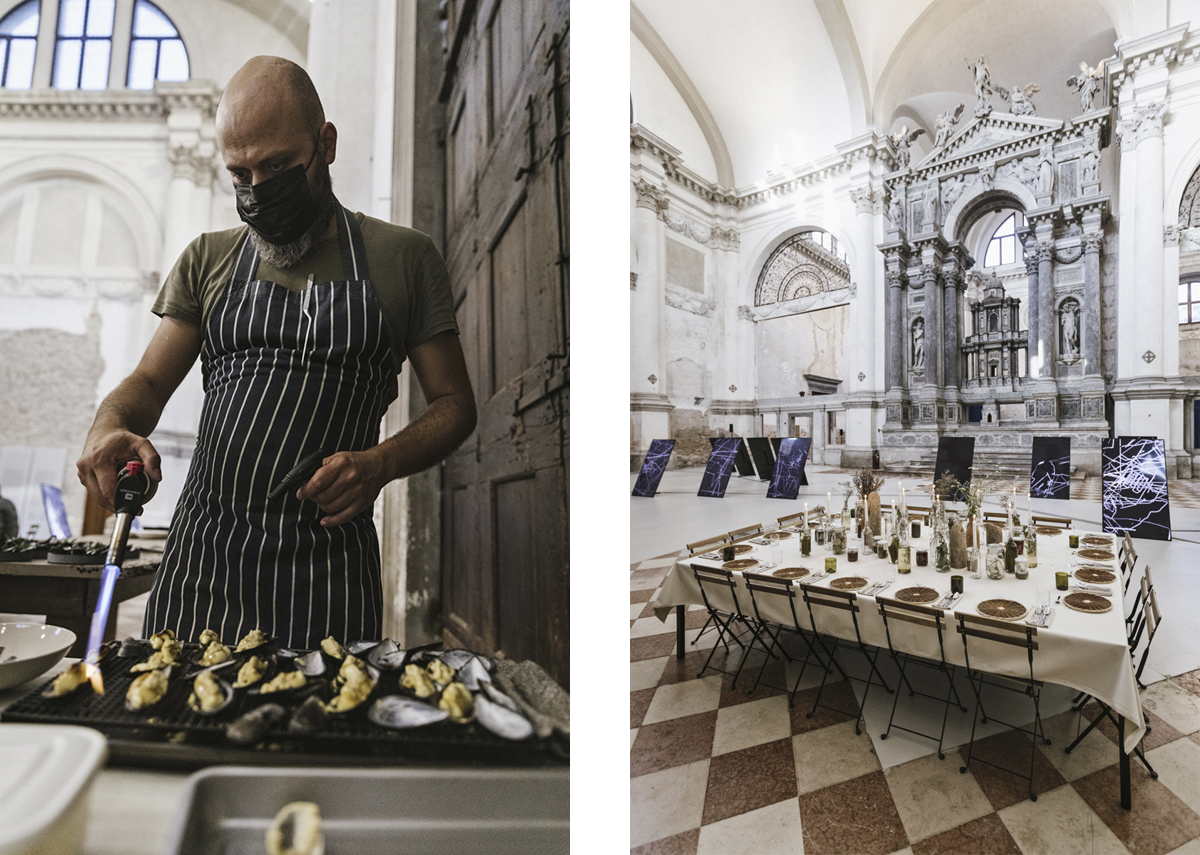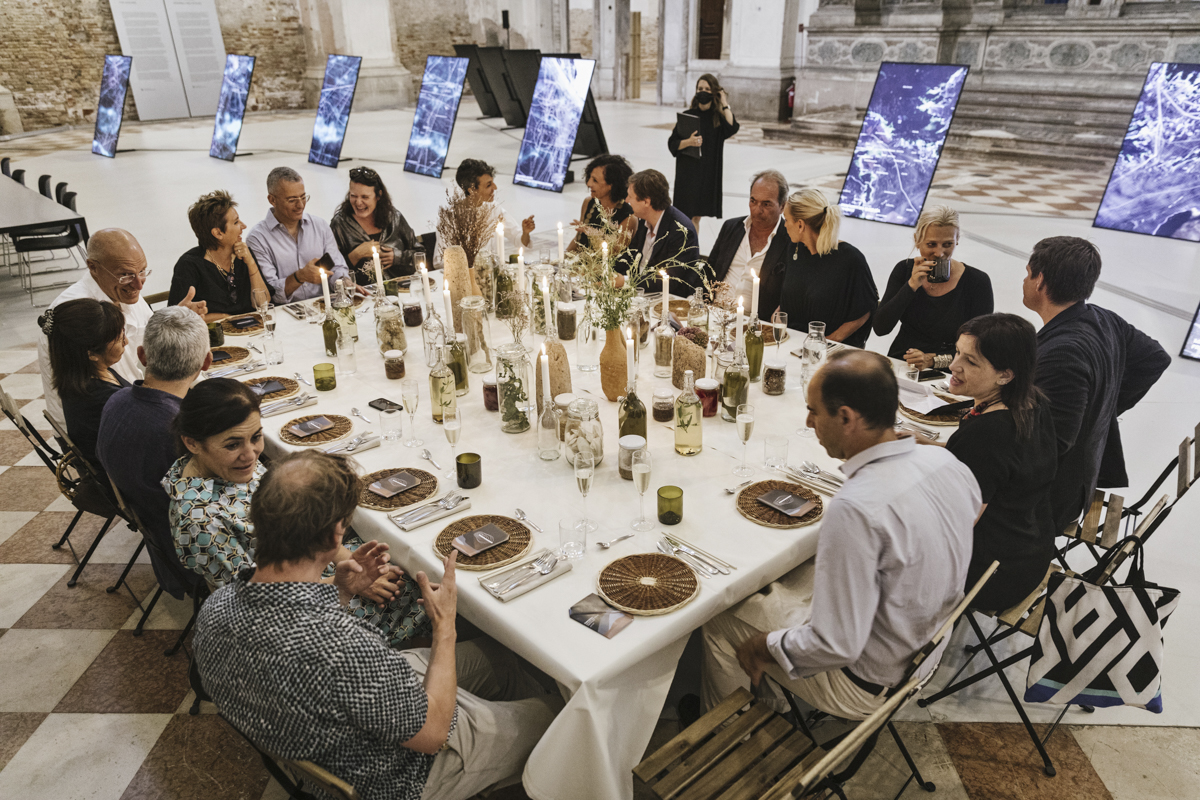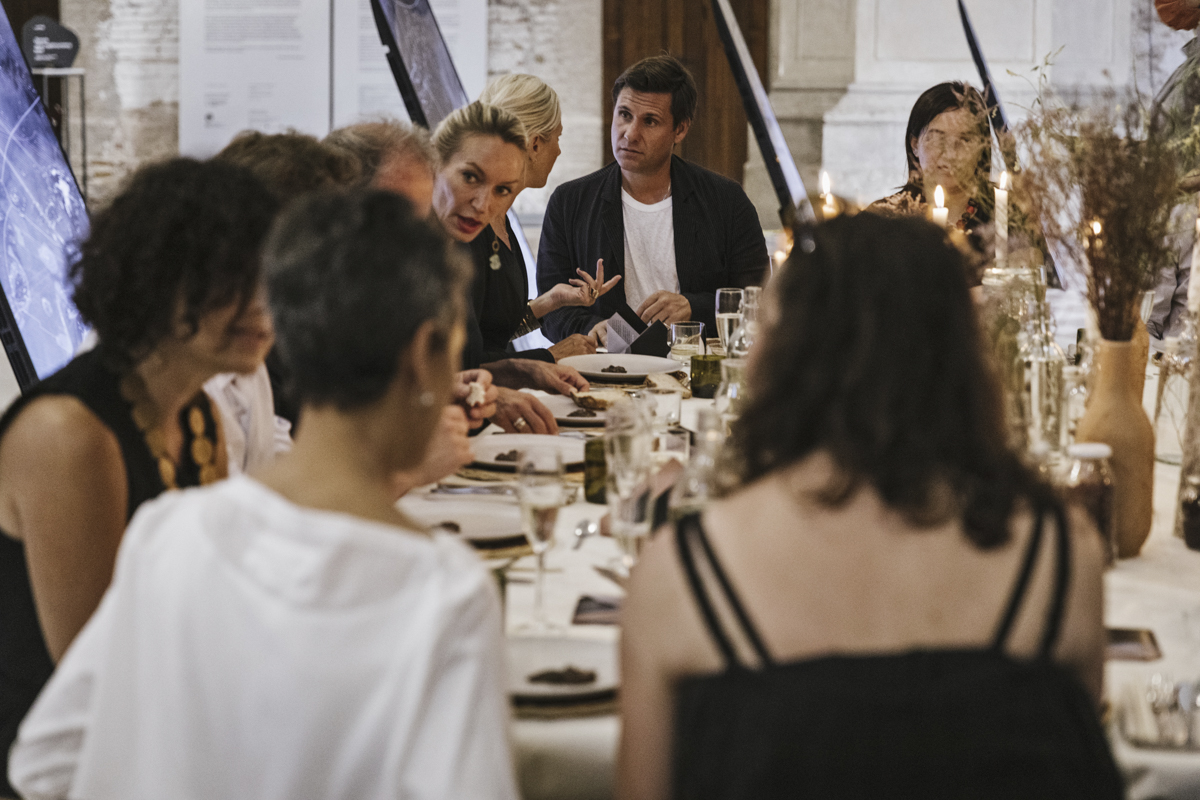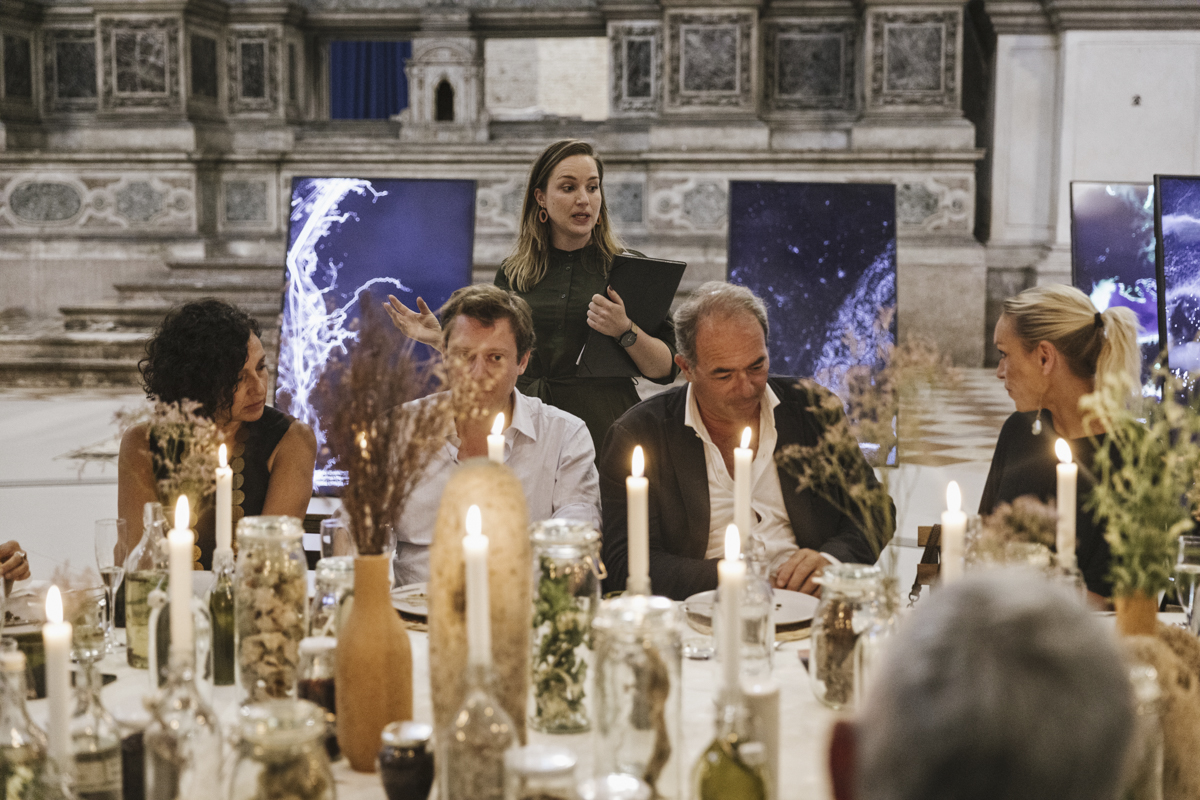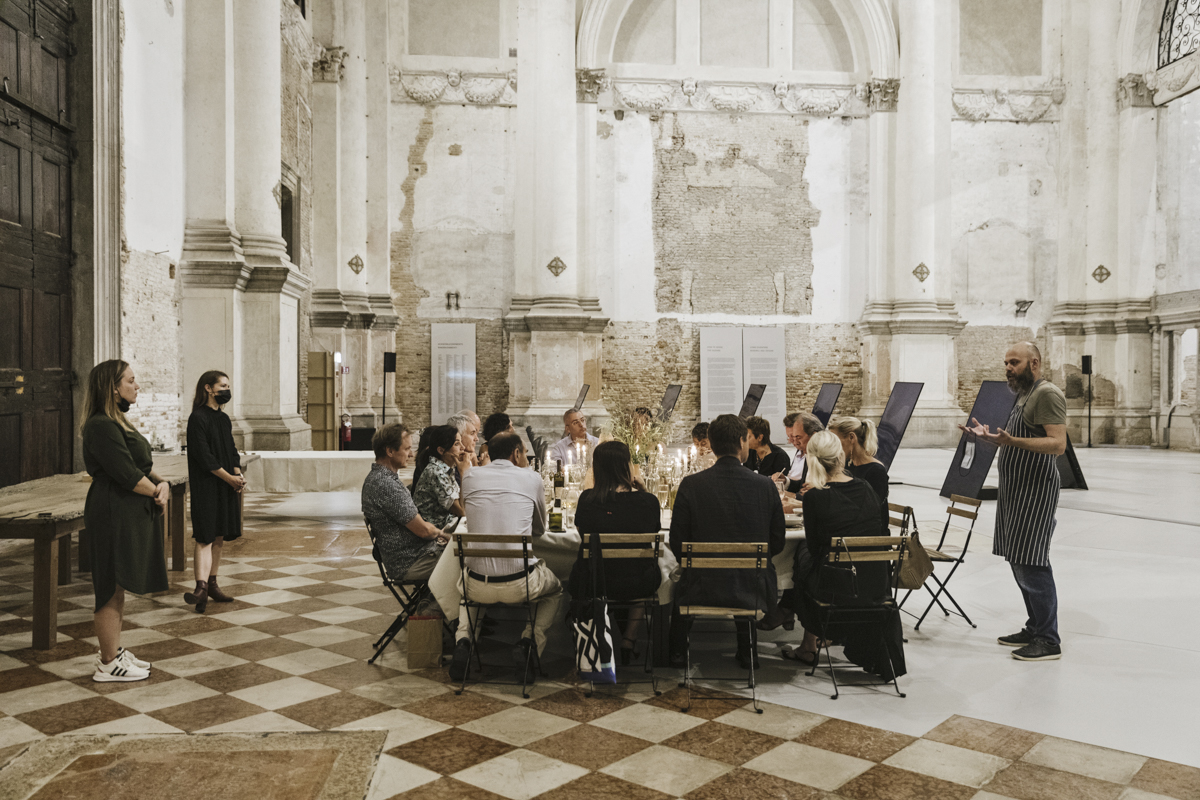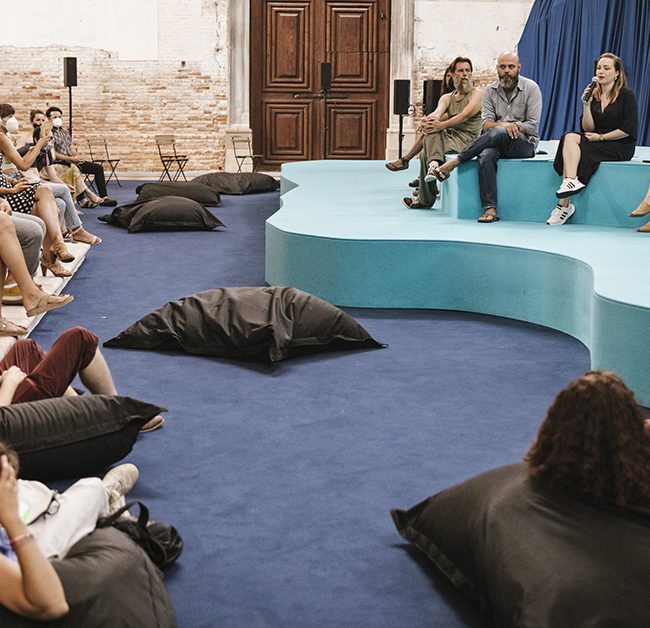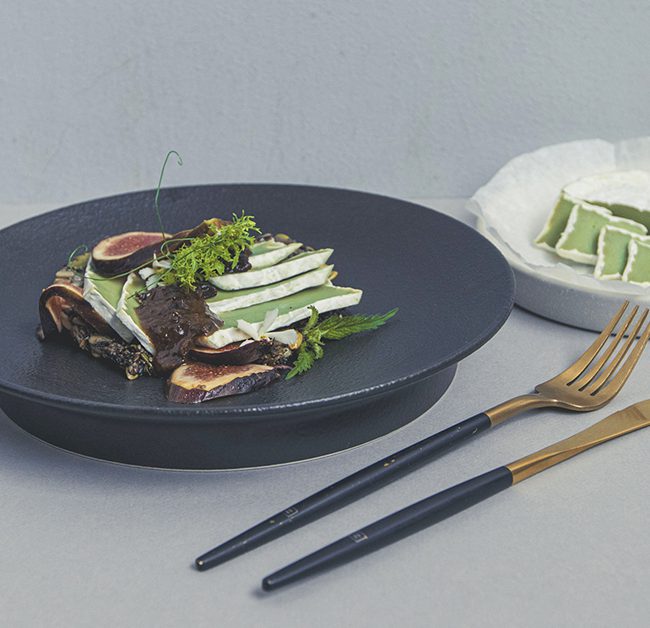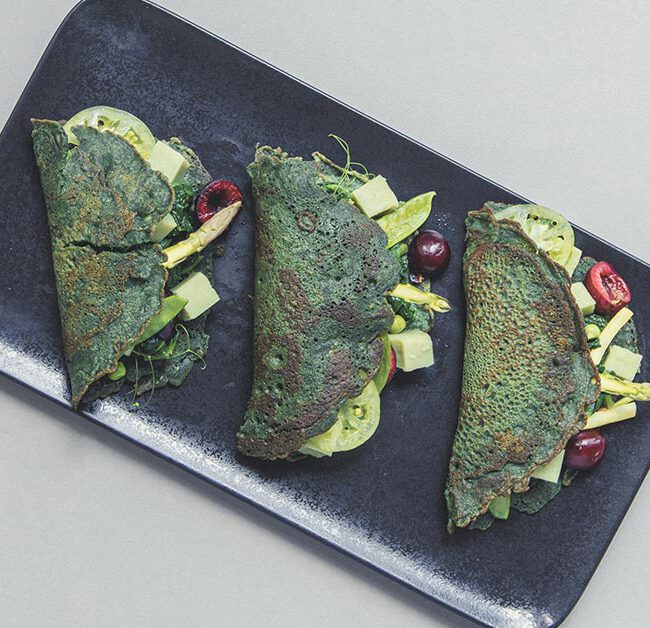Dinner Event
A Culinary Event at OCEAN SPACE
In Partnership with the Center for the Humanities and Social Change
Università Ca’ Foscari Venezia
17-20 June 2021
A recipe for salt calls for two ingredients: the sea and the sun. But what is the recipe for Venice? The city of Venice emerged from salt marshes—from the labor of tides carrying seawater back and forth, in and out. As a “forest on the sea,”[1] Venice is a balancing act and salt knows a thing or two about balance. Salt executes order. It conducts how an ingredient behaves. Too little and even a confident legume tastes like something is missing. Too much and drought spreads across the mouth. The human appetite for salt, as the anthropologist Margaret Visser points out, reveals that we are in fact “walking marine environments.”[2] The sea in our mouths. The lagoon on our tongues. But as much as salt preserves—keeping ingredients in line and flavours in balance—it also damages and erodes. In dialogue with salt’s duality, Tidetables: Venetian Speculative Gastronomy draws from Venice’s past and present to reimagine its future.
An edible essay, this event casts food as a critical means with which to experience Venice and its lagoon. The table becomes a laboratory for understanding and shaping saltwater worlds and coastal futures. Eating becomes a method of inquiry. Calling for a move away from an exclusive focus on terrestrial food politics, cultural studies scholar Elspeth Probyn asks: “can we eat with the ocean?”[3] She wonders: “How to eat the ocean well?”[4] We—chef Marco Bravetti, cultural historian L. Sasha Gora, and food designer Katinka Versendaal—speculate answers to these questions. Can Venice eat with the lagoon?
One part meal and one part investigation, this experiment in Tidetables: Venetian Speculative Gastronomy will shadow the rhythms of the tide to ask: What does it mean to eat with something? What does it mean to eat with the tide or against it? These questions relate to larger debates about how human appetites change climate and how climate change, in turn, influences human appetites.






